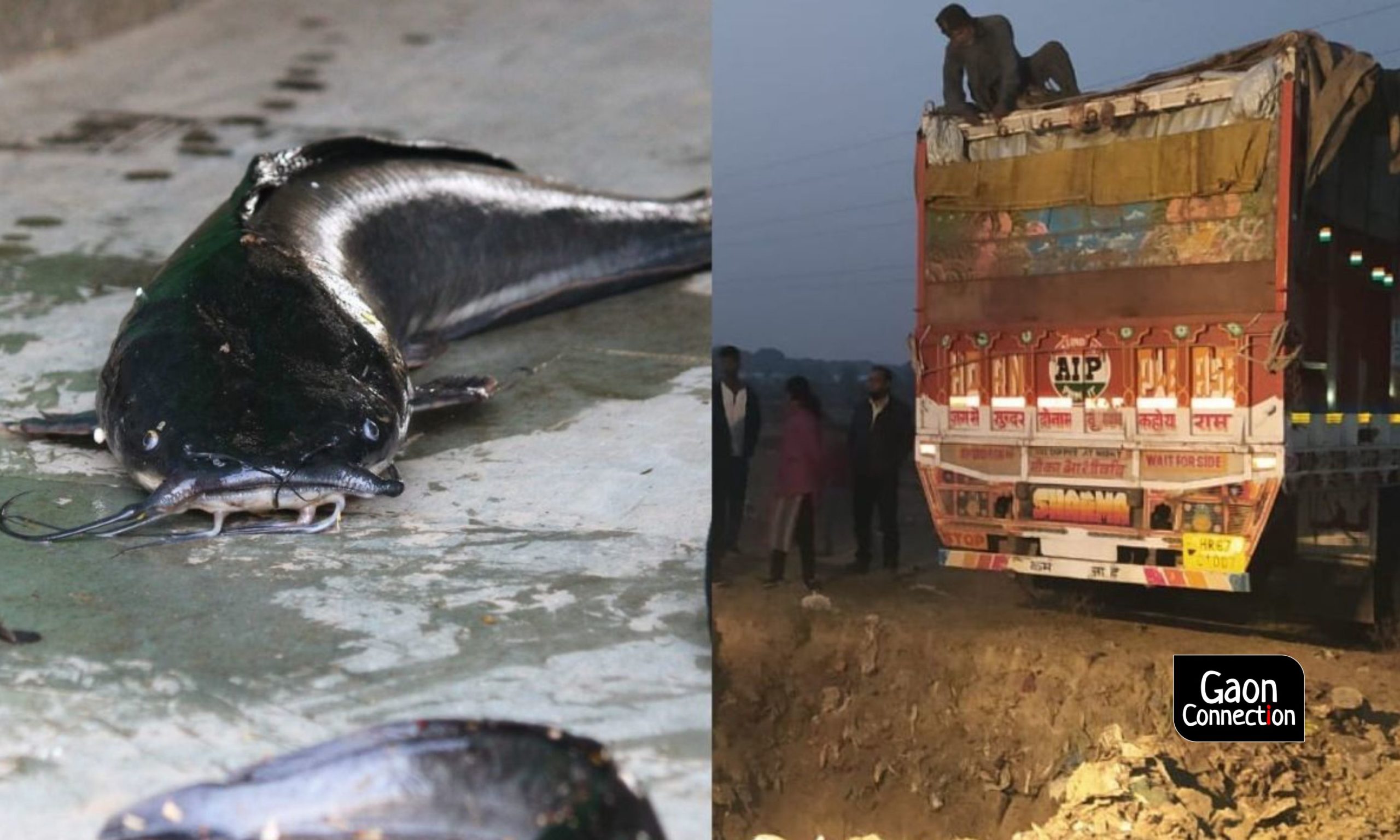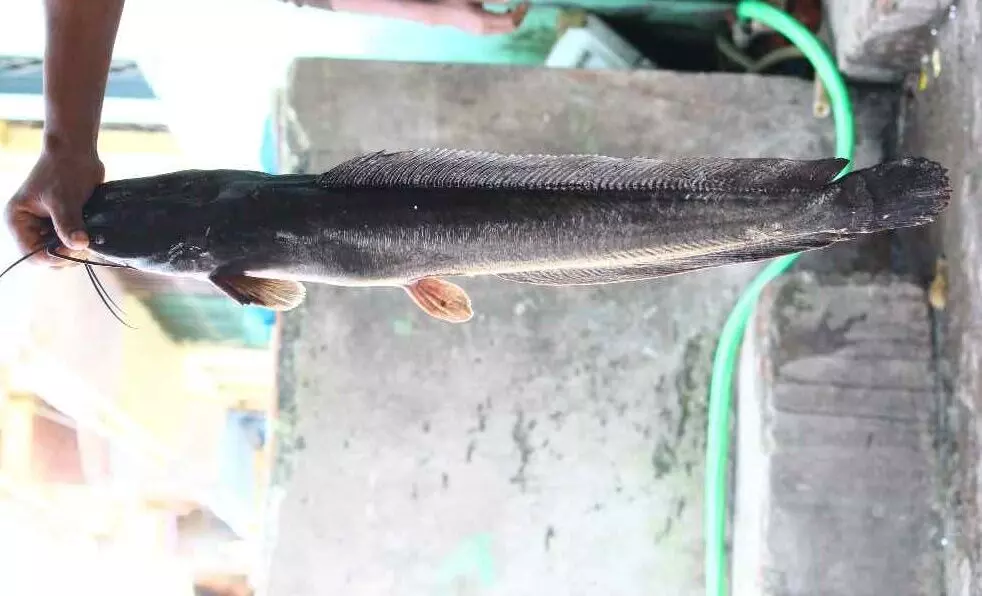A Fishy Affair: 15 tonnes of Thai Mangur fish destroyed in Varanasi. It is illegal to breed it, yet it continues to thrive
Breeding the Thai Mangur or African Catfish was declared illegal in the country in 2020. However, officials of the fisheries department intercepted and destroyed a shipment in Varanasi, en route Hapur in Western Uttar Pradesh from West Bengal.


Photo: Department of Fisheries, Uttar Pradesh.
On January 12 this year, fisheries department officials destroyed 15 tonnes of Thai Mangur or African Catfish in Varanasi, Uttar Pradesh. It is illegal to cultivate this in India.
The Mangur is considered harmful to the environment, and its breeding was banned by the National Green Tribunal last year. It said Thai Mangur rearing should be banned in all states and union territories, and any stock must be decimated. In spite of that, the fish continues to thrive in different states.
“Fisheries department officials in Varanasi district were tipped off that a haul of Thai Mangur fish was being brought by truck,” Harendra Prasad, deputy director, fisheries department in Uttar Pradesh, told Gaon Connection. Acting upon the information, officials intercepted the truck and seized 15 tonnes of Thai Mangur fry (baby fish) that it was illegally transporting from West Bengal to Hapur in western Uttar Pradesh. “People in western UP are cultivating the Thai Mangur,” said Prasad, adding many had also been charged for it.

The Indian government had completely banned the farming and sale of Thai Mangur in 2000, yet it was openly being sold in fish markets, said Prasad. “The carnivorous fish grows rapidly in any type of water and feeds on other aquatic insects, and small fish, harming the ecology of the ponds,” explained Prasad, adding that it can survive in the most contaminated of water bodies. This makes it harmful for people to consume.
In February, last year, 32 tonnes of Thai Mangur were destroyed in Maharashtra and in several districts of Uttar Pradesh. The scientific name of Thai Mangur or the African catfish is Clarias gariepinus. The reason why people defy rules and breed it is because it is profitable — it grows to nearly three kilogrammes in four months and fetches about Rs 80 to Rs 100 a kg.
“Consuming this fish is harmful for human beings,” Akhilesh Yadav, technical officer at the National Bureau of Fish Genetics, told Gaon Connection. According to him, although awareness programs were regularly held about the harm of consuming this fish, people continued to cultivate and sell it. “Because it is inexpensive to grow, people smuggle its fry from outside,” Yadav said.

